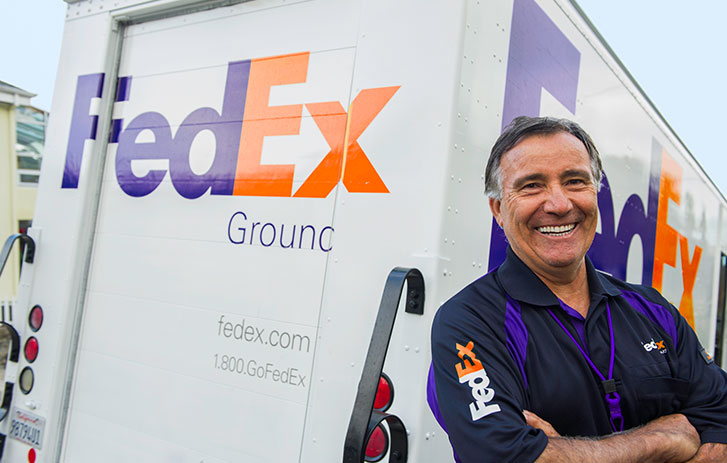Peter Lynch, a multi-hundred millionaire investor and Fidelity investment manager, has been vocal about his leading investment philosophy: Invest in what you know.
Many investors look up to Warren Buffet. He is widely considered one of the greatest investors of all time.
He echos Lynch’s sentiment: ‘Don’t invest in a business you can’t understand.’
Whether that be drawing on your professional experience or your observations as an every day consumer, understanding what companies offer and how they make their revenue is step one in effectively vetting potential investment opportunities.
You’re probably aware that CVS is a shopping center staple with a national presence. You know that FedEx has had tremendous growth over the last decade; perhaps its role within your own life has grown. With the rise of e-commerce, you probably also can understand why the services of shipping companies like FedEx are becoming ever more central to the functioning of our shape-shifting economy.
Think outside of the stocks
Sure, you could invest in these companies by buying shares of them in the stock market.
Or you could leverage their success, stability, and growth prospects by investing in the critical infrastructure these businesses need to operate.
HappyNest is an alternative investment that fits the bill.
We own a portfolio of commercial and industrial properties and lease them out to the likes of CVS and FedEx.
By buying shares of HappyNest, you become a partial owner of these properties. You’ll also become a partial landlord to these Fortune 500 companies. As a shareholder, you’ll get a slice of the rental income and enjoy the value appreciation of our properties.
Best of all, you start building your personal passive income stream.
HappyNest’s portfolio consists of in-demand properties with tenants you know
It’s not hard to see that the demand for the properties in our portfolio is unlikely to wane anytime soon.
Industrial shipping property in Fremont, Indiana
Consider our industrial shipping center based in Fremont, Indiana. With the rise of e-commerce, facilities like these are already rapidly appreciating in value, and are projected to see exponential growth.
And that’s just to support current demand.
But it’s hardly the end of the e-commerce sector’s growth. Current forecasts estimate 30% expansion or more by 2024.
That makes it hard to imagine a property like this will struggle to find tenants or face value depreciation.
Commercial retail property in East Hampton, MA
Our portfolio also has a commercial retail asset. This 8,775 square foot property is located in East Hampton, Massachusetts.
While the commercial retail sector experienced market volatility in recent years due to the pandemic and social distancing, our property is home to a CVS pharmacy.
Because many pharmacy offerings require in-person consultations, business operations in this sector have fared moderately well through lockdowns. We haven’t experienced any interruptions in rent and don’t expect to with this well-established tenant. CVS still has twelve years left on the active lease.
The long-term nature of the lease, and considering our estimations for this property’s value appreciation during the lease period, the rental rate on this property is on a five-year tiered plan.
Every five years, the rental income will increase. CVS has already accepted these future rent raises as part of the contract. These scheduled rent increases amount to approximately a 10% bump every five years.
Those rent increases will be trickle back to HappyNest shareholders in the form of higher rental yields.
Translation: Revenue growth is already in the signed contracts.
HappyNest likes to keep things simple
Here at HappyNest, we strive to streamline our own operational costs so that value add and revenue can be passed right on to our investors.
One advantage we have is that though the properties in our portfolio are high value, they generally require one tenant. That means we don’t have to invest time and resources to continuously fill vacancies as an apartment building or shopping complex might require. It also means less fluctuation in dividend payments based on vacancy rates and overhead.
We prefer to keep things simple and consistent. As we look to add to our portfolio, we consider the property’s long-term prospects, what kind of companies and industries would be interested in that property, and select for the best combination of high value and lowest management overhead possible.
Less paperwork. More dividends.
When you invest in HappyNest, you invest in what you know
HappyNest is a strategic approach to ‘invest in what you know.’ It’s thinking outside of the box and finding ways to invest in valuable, stable companies outside of the stock market.
If you agree that e-commerce will probably continue to see healthy growth in coming years, you can probably see why we think industrial shipping centers won’t fall out of fashion.
If you agree that many pharmacies will continue to require in-person visits for many of their offerings, you’ll probably be on the same page with us regarding reliable demand for properties like ours.
It’s not too hard to understand that managing one or two tenants per property is easier than managing many.
Having tenants like FedEx and CVS is also a major advantage, because the outlook for these major corporations over the next few years suggests they will have no problem making rent. We bet most people never considered that they could become the landlords of Fortune 500 companies. But with HappyNest, they absolutely can.
Grow your yields as we grow our portfolio
As HappyNest’s collective investing base grows, we will use our pooled capital to acquire more properties.
Your principle capital investment is reinvested into more assets, expanding your portfolio, tenants list, and dividend income. Brick by brick, you’ll be steadily building your financial future and making your money work for you.
Warren Buffett, the Oracle of Omaha, says: “If you don’t find a way to make money while you sleep, you will work until you die.”
But as HappyNest’s portfolio grows – and whenever corporate America’s rent comes due – you’ll be sleeping like a baby.


